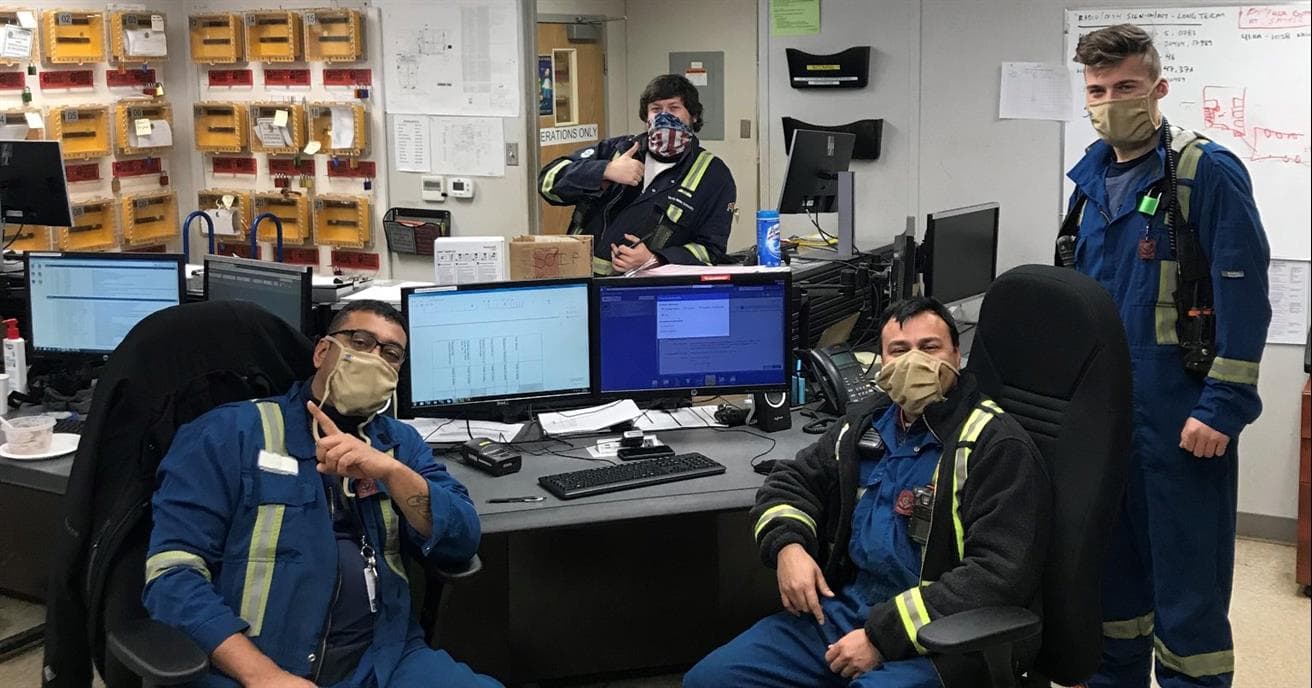Daniel Mckay, Coordinator, Operations Maintenance, and his colleagues at the East Tank Farm (ETF) are setting an example that our other sites will soon follow, with the implementation of the Digital Control of Work (DCoW) pilot program. The East Tank Farm is a jointly-owned development with the Fort McKay First Nation (FMFN) and the Mikisew Crew First Nation (MCFN) and it was the largest business investment done by First Nations in Canada. ETF provides bitumen storage, cooling and blending services for the Fort Hills oil sands project.
The program moves everyday operational activities online and integrates them to make them easier to manage. Things like permit to work, isolation/lockout and risk management are consolidated into a single, digital platform. Operations and maintenance workers can access critical data through mobile devices in real-time from the field.
“DCoW is all about improving worker safety,” emphasizes Michael Arns, Product Owner for Control of Work in Business & Operations Services, who is rolling out the program as part of Suncor’s transformation and to optimizing our base business. “We are standardizing important business processes and using digital technology to access critical data. It will impact all frontline workers, supervisors and contractors at all Suncor sites and change how they interact for the better.”
With the new Permit Vision software, frontline workers have good visibility to all site activities, so in the case of an emergency, managers can see what work is happening and can stop work immediately if needed. It also allows sites to put a greater emphasis on safety with a built-in risk assessment and job hazard analysis tool prior to any work beginning in the field.
“DCoW puts technology into the hands of our operations and maintenance teams and increases team collaboration,” says Daniel. “One of the features we’ve appreciated the most is the ability to issue permits digitally, so we no longer have to drive to the site office to manually complete permits. Not only are we now more efficient, we can also work more safely.”
While Daniel agrees it was a big process change, he credits the pilot’s success at ETF to the willingness of frontline workers to embrace the program and learn new ways of working through extensive training and support from the team.
“It was exciting and challenging, but everyone was very positive and helped each other out,” says Daniel. “We had great leaders who were very vocal about how much these changes would benefit us all.”
Building on pilot success at Burrard Terminal
After ETF, the program recently launched at our Burrard Terminal on October 18 and Michael Gursky, Area Manager, says his team is keen to be the next early adopters of the program.“We are setting up workers to be safe and successful in their daily tasks. Standardizing processes offers opportunities for improvement across our site. As early adopters, we benefit from having the DCoW team readily available to help us, and we have more time and flexibility for rollout. Through our experiences, we can offer feedback that will benefit other sites in the future.”
“It’s very rewarding to know we are making a difference,” says Michael who will continue to work with the project team to roll out DCoW to all sites, over the next two years.




.jpg?mw=304&modified=20210929193153&hash=98D59E42D8503D7D75AB7D29EB77A216)